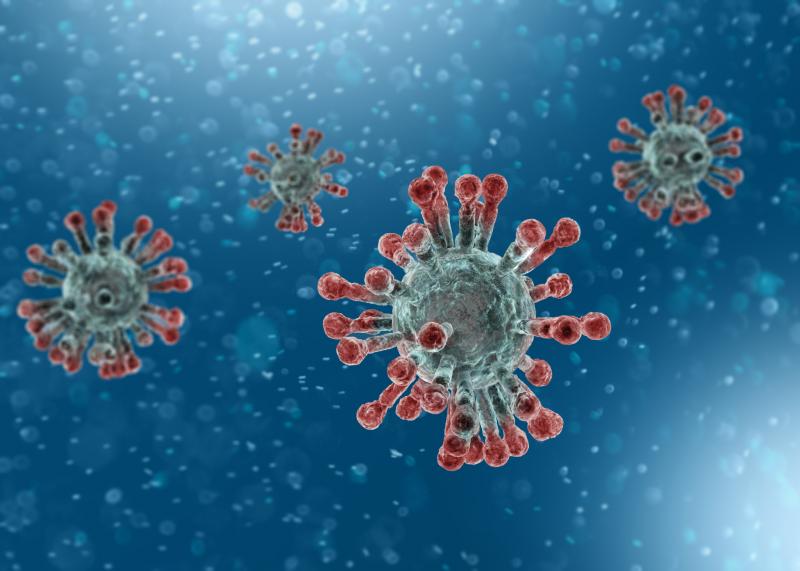The Delaware Division of Public Health announced the state’s first presumptive case of COVID-19 March 11 involving a New Castle County man over the age of 50.
The man is associated with the University of Delaware community, but he is not severely ill, said Jennifer Brestel, spokeswoman for DPH. UD officials said the man is a faculty member.
She said the man was exposed to another confirmed case of the virus in another state, and he self-isolated at home as soon as symptoms appeared. Epidemiologists from the Division of Public Health are working to identify any close contacts of the individuals who were possibly exposed. If other people are found to have possibly been exposed, state health officials will provide guidance to these individuals and monitor them closely for the development of symptoms, Brestel said. DPH will not be disclosing additional information about the individual, she said.
“The patient is doing well. We understand that news of a positive case in the state is concerning, but this is something we have been preparing for over the last several weeks,” said DPH Director Dr. Karyl Rattay. “DPH is working closely with CDC, hospitals, clinicians, and other medical providers to proactively identify and respond to any possible cases of coronavirus disease 2019. We will continue to keep the public fully informed as additional information becomes available.”
Students, faculty, and staff who have concerns about potential exposure risks should contact the University of Delaware’s Call Center at 302-831-1188 between 9 a.m. and 5 p.m., Monday through Friday.
DPH continues to closely monitor the global outbreak of the respiratory illness COVID-19 that was first detected in Wuhan City, Hubei Province, China. There have been 121,564 cases worldwide, and more than 4,373 deaths. In Delaware, DPH has tested 31 individuals for COVID-19, including the individual who tested positive for the disease. A total of 21 tests returned negative results, and nine persons under investigation are awaiting test results.
Elevated risk for developing the disease is based on exposure due to travel to a country with a Level 2 Travel Alert or higher, meaning China, Japan, Iran, Italy or South Korea, in the last 14 days or contact with someone who has a confirmed case of COVID-19, or individuals 65 years old and older and those with chronic underlying health conditions.
Symptoms of COVID-19 are most similar to lower respiratory infections with patients having fever, cough and shortness of breath. At this time, there is no specific antiviral treatment recommended for COVID-19. While in some cases illnesses can be severe and require hospitalization, many individuals suffering from COVID-19 recover by resting, drinking plenty of liquids and taking pain- and fever-reducing medications.
Community spread is being detected in a growing number of places, including in the states of California, Washington and New York in the United States. More cases of COVID-19 are expected in the United States in the coming days, including more instances of community spread.
DPH advises older Delawareans and people with severe chronic health conditions to follow guidance issued by the Centers for Disease Control and Prevention encouraging them to avoid crowds as much as possible to reduce their risk of contracting coronavirus disease.
If you are in the higher-risk groups for getting very sick from COVID-19, the CDC recommends you should:
- Avoid nonessential travel such as long plane trips and defer all cruise trips worldwide.
- Avoid crowds, especially in poorly ventilated space, as much as possible.
- When you go out in public, including to doctor appointments or dialysis, keep away from others who are sick, limit close contact and wash your hands often.
- Take everyday precaution to keep space between yourself and others.
- If an outbreak does occur, stay home as much as possible.
- Stock up on supplies, including prescription and over-the-counter medicines, food and water, and other household items.
- Have a plan in the event you get sick, including discussing with household members, other relatives, and friends what you might need.
Older Delawareans, people with severe chronic health conditions and all other members of the public can call the Division of Public Health’s Coronavirus Call Center at 1-866-408-1899 or TTY at 1-800-232-5460 from 8:30 a.m. to 4:30 p.m. Monday through Friday, or email DPHCall@delaware.gov. For the latest on Delaware’s response, go to de.gov/coronavirus.
Delaware is experiencing a particularly serious flu season with 6,000 lab-confirmed cases and 11 deaths statewide, and in addition to getting your flu shot, DPH recommends everyday measures that people can take to prevent the spread of all infections, which would also slow the spread of coronavirus disease:
- Cough or sneeze into your elbow, not your hand. If you use a tissue, dispose of it right away.
- Wash your hands frequently and thoroughly, including the backs of your hands and under your nails, for 20 seconds, or use alcohol-based hand sanitizer.
- Do not touch your face, eyes, nose or mouth with unwashed hands.
- Clean commonly used surfaces such as computers, desktops, countertops, cabinets, handles and more with disinfectant.
- Stay home when you are sick.
- If you are healthy, the CDC does not recommend buying or using face masks. You should only wear a mask if a healthcare provider tells you to do so.
Symptoms of COVID-19 can include fever, cough and shortness of breath. The symptoms may appear in as few as two days or as long as 14 days after exposure. Reported illnesses have ranged from people with little to no symptoms, similar to the common cold, to people being severely ill and dying.
DPH will continue to update the public as more information becomes available. For more information, visit de.gov/coronavirus.
People with questions about coronavirus disease are encouraged to call the DPH coronavirus information line at 1-866-408-1899, TTY 1-800-232-5460, or email DPHCall@delaware.gov.




















































